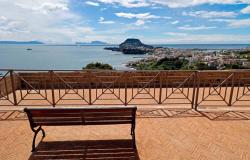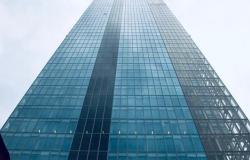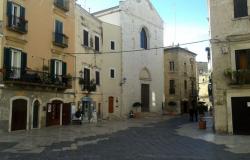How does it work out there? The students of the master’s degree courses of the faculty of Agricultural, Food and Environmental Sciences of the Catholic University of the Sacred Heart tried to understand this, protagonists with some teachers of a journey along the roads of Europe, with the last stop in Brussels, at the European Commission. For around seventy students, divided into two groups, it was an opportunity to deepen their knowledge of the wine, livestock and dairy sectors, being able to compare what they learned at the Piacenza and Cremona universities with different realities.
The trip, which took place from 7 to 13 April and which crossed five European countries (Germany, France, Belgium, Holland and Switzerland), was financed with the support of the Catholic University and through sponsorships collected thanks to the efforts of the students in seeking and request contributions. Various companies have thus proved enthusiastic in participating and contributing to the initiative. They are the Gerre Basse agricultural company, MSD Italia, the Invernizzi Foundation, Sivam, the Terrepadane agricultural consortium, the Cremona agricultural consortium, Corteva, Omnia Technologies, Pba Italia and Credito Padano Bcc.
A group, made up of students of the degree in Sustainable Viticulture and Oenology (Sve), placed the focus above all on viticultural issues. «It was a much appreciated opportunity – says Emanuele Mazzoni, a teacher at the Cattolica who accompanied them – the students were able to have a comparison with non-Italian realities and therefore not easily within reach for them».
Among these, for example, the visit to a winery in Switzerland, where the technical manager is a student from the Catholic University who is completing her studies, or to the BASF offices in Lyon, «where – explains Mazzoni – talked about the evolution of plant protection”. There was also no shortage of tastings and vineyard visits along the road from Dijon to Alsace. «A field experience, such as a visit to the vineyard, is useful for understanding the problems caused by climate change, which is starting to make its consequences felt even in the northernmost areas of Europe» states the professor.
The other group included students of Agricultural and food economics, Sustainable Precision Agriculture and Sustainable Precision Animal Husbandry. «In these days of visits to international research centers and universities equipped with experimental structures – says the professor of the Cattolica, Antonio Gallo – there has been talk of interships with multinationals active on a global scale, of students who actively work in the experimental companies of the faculty, of extracurricular experiences that are “normally” done by students from other continents in Europe. For the students who attend our courses, however, I believe that the real added value of this experience is to have strengthened relationships between them, even if they come from different profiles of our faculty, and to have gotten to know the teachers in other guises”.
«For the students of the Catholic University – says Gabriele Canali, another professor of the university who accompanied them – it was an important opportunity to deal with different perspectives and to be challenged on topics even if they were not of specific interest to them as regards the direction of studies, although related”.
The trip took them to visit the multinational Corteva, which operates in the agropharmaceuticals and seeds sector, and then to Holland, where they visited the experimental farm, also managed by students, of the University of Applied Sciences of Aeres, but also in other companies in the sector that work on the genetic improvement of horticultural crops, and also in companies of partner universities, with the aim of alternating a visit focusing on the agricultural sector with one more relating to the livestock sphere along the way.
Both groups closed the trip in Brussels, where together they participated in the seminar at the Directorate General for Agriculture (DG-AGRI) on the evolution of the CAP over time and on the prospects for 2027, held by Pasquale Di Rubbo, former student of the Catholic University and today an official of DG-AGRI. One of the groups subsequently followed a meeting at Copa-Cogeca, a representative body of all European agricultural associations and cooperatives: on the occasion Riccardo Pelani, another former student of the Cattolica, explored the institutional role and organizational complexities of this organization along with hot topics like the current tractor protest.
«It was an opportunity to discover how agriculture is changing in different countries in order to find appropriate solutions to different environmental and socio-economic contexts – closes Canali – the student returns enriched from these trips because they allow him to deepen his ability to analysis, also by virtue of an almost physical contact with the territory”.
Advertising
Tags: Students Cattolica Piacenza traveling discover Europe





